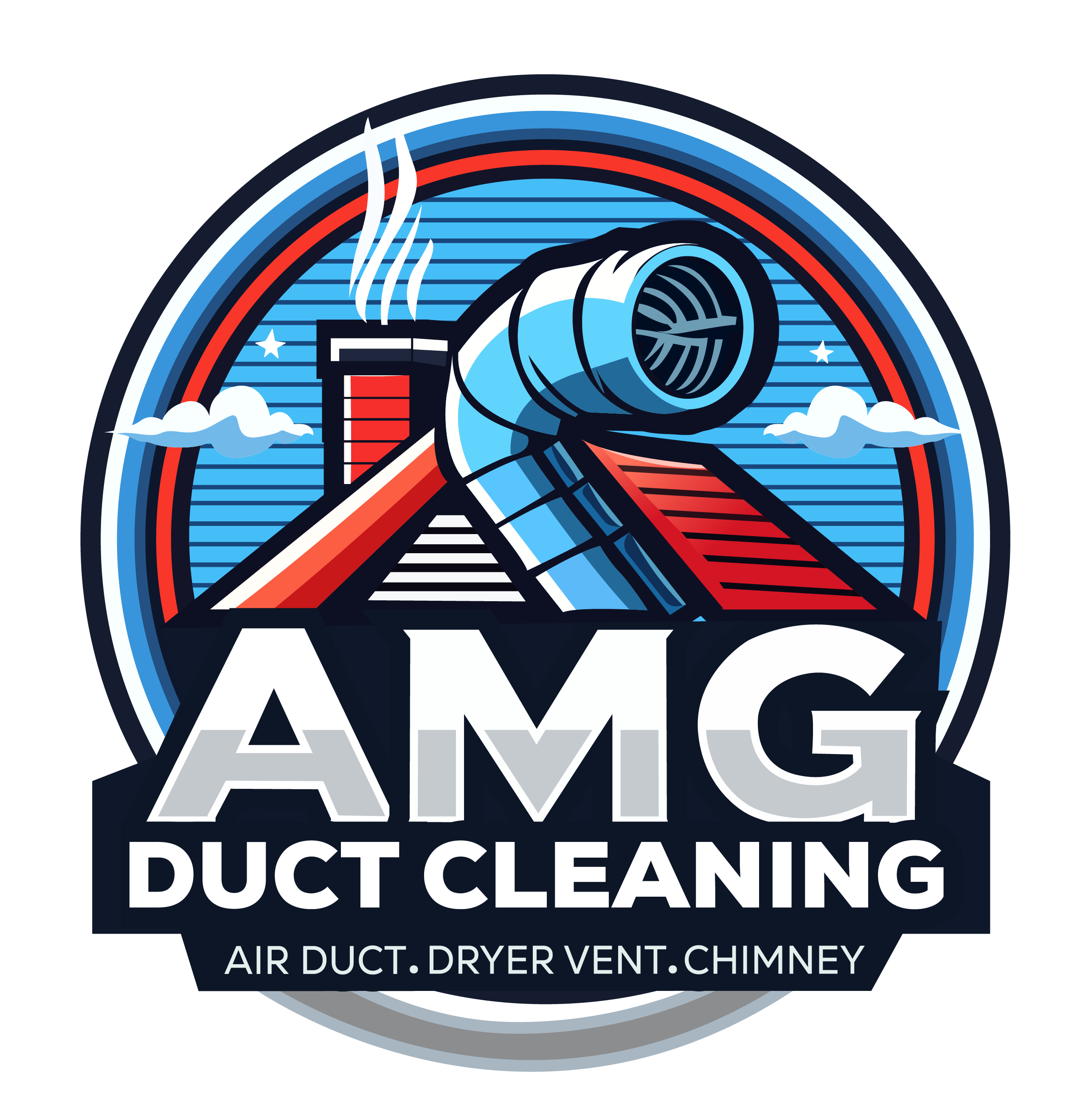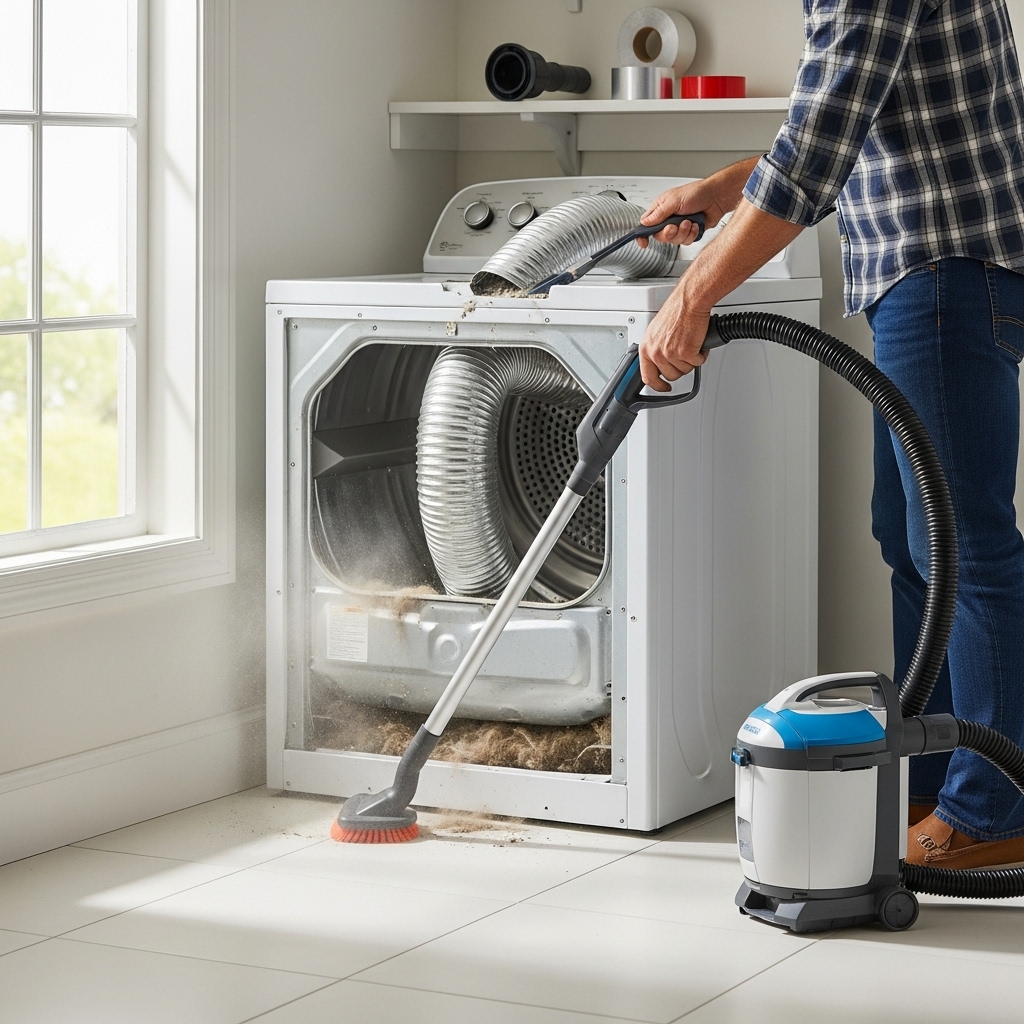Dryer vent safety starts the day the system is installed and continues through routine maintenance for as long as the appliance is in service. In Elizabeth, New Jersey, where winters are cold and summers humid, keeping dryer exhaust moving smoothly to the outdoors protects your home’s structure, your appliance, and your indoor air quality. This guide explains the practices and schedules that sustain safe performance from installation onward, with tips tailored to local housing and climate. If you prefer a turnkey solution, you can rely on expert dryer vent installation that integrates long-term safety and maintenance considerations from the very beginning.
Safety Foundations: Installation Choices That Prevent Problems
Maintenance is easier—and safer—when the system is built correctly. Start with smooth-walled 4-inch metal duct for the primary run, a short UL-listed semi-rigid aluminum transition connector, and a low-resistance exterior termination with a free-swinging damper. Keep the route short and straight, and count elbows toward the maximum effective length specified by the dryer manufacturer. Seal joints with foil-backed metal tape and support the duct every four to six feet. These decisions minimize lint accumulation and help ensure robust airflow that carries lint outdoors instead of allowing it to settle inside the duct or appliance.
Why Airflow Matters
Lint is both lightweight and combustible. Strong airflow suspends lint and moves it out of the system. Any restriction—crushed connectors, tight elbows, long runs, or clogged terminations—reduces airflow and increases the chance that lint will drop out and accumulate. Over time, that accumulation creates longer drying times, higher operating temperatures, and elevated fire risk. Good airflow also helps prevent moisture from condensing in the duct during winter and keeps the dryer’s internal components running cooler and more efficiently.
Elizabeth, NJ Climate Considerations
Cold winters, spring storms, and summer humidity require special attention to weather resilience. During cold snaps, condensation can form inside ducts that pass near exterior walls or through unconditioned spaces. To mitigate this, maintain a slight slope toward the exterior termination so condensation drains out. Position terminations where snow and leaves are unlikely to obstruct the damper. In humid months, fast, unrestricted exhaust is your ally against moisture buildup that can feed mold. Coastal influences mean corrosion-resistant materials and vigilant exterior checks are wise choices for neighborhoods around Elizabeth and Union County.
Routine Maintenance Schedule
- Every Load: Clean the dryer’s lint screen. Even a partially blocked screen can slow airflow dramatically.
- Monthly: Inspect the exterior hood. The damper should swing freely and close when the dryer is off. Remove visible lint and check for nesting activity.
- Seasonally: Vacuum behind and under the dryer, verify the transition connector is uncrushed, and confirm that the appliance is not pushed tightly against the wall.
- Annually or As Needed: Schedule a full vent cleaning based on usage, including brushing the duct run to remove accumulated lint. Busy households or pet owners may require more frequent service.
Deep Cleaning Process
- Unplug the dryer (and shut off the gas valve for gas dryers). Move the appliance to access the wall box and transition connector.
- Disconnect the transition connector and inspect it. Replace if crushed, torn, or heavily linted.
- Use a rotary brush kit designed for dryer ducts to clean the run from the interior and the exterior. Collect debris with a vacuum.
- Inspect the exterior termination. Clean the hood, verify the damper movement, and ensure the flange seal remains intact.
- Reassemble with a new or undamaged transition connector, re-tape joints as needed, and test airflow.
Signs Your Vent Needs Attention
- Drying time increases for typical loads.
- Clothes or the dryer exterior feel unusually hot after a cycle.
- Musty smells in the laundry area, indicating moisture lingering indoors.
- Visible lint around the exterior hood or on nearby surfaces.
- The damper flutters weakly or not at all during operation.
Safety for Gas Dryers
Gas dryers require the same venting principles as electric models, with the added consideration of combustion byproducts. Ensure adequate combustion air to the laundry area and confirm that the vent terminates outdoors. Install carbon monoxide alarms according to manufacturer guidance and test them regularly. If you detect gas odor or see an irregular burner flame, shut down the appliance and contact a qualified technician immediately.
Common Hazards and How to Prevent Them
- Plastic or Foil Flex in Main Runs: Replace with smooth metal duct to reduce fire risk and lint traps.
- Screws Protruding into the Duct: Use crimped male ends and foil-backed metal tape instead of penetrating fasteners.
- Roof Terminations Without Proper Flashing: If a roof exit is unavoidable, ensure meticulous flashing and choose a termination designed for dryer exhaust.
- Indoor Terminations: Never vent into attics, crawlspaces, or garages. Moisture and lint must exit the building envelope.
- Obstructed Dampers: Snow, leaves, or nests can hold the damper closed. Keep the area clear and check movement frequently.
Enhancements to Improve Safety and Performance
- Recessed Dryer Box: Allows the appliance to sit closer to the wall without crushing the connector.
- Long-Radius Elbows: Reduce resistance compared to tight bends.
- High-Quality Termination: A well-designed hood with a low-resistance damper improves flow and reliability.
- Accessible Cleanout Points: Strategic access can simplify future cleaning in long runs.
Airflow Verification Methods
After maintenance or changes, verify performance. A simple hand test at the exterior termination can reveal strong exhaust. For a more precise check, technicians may use anemometers or pressure gauges to quantify flow. Record drying times for a standard load to establish a performance baseline and compare at future maintenance intervals.
Multi-Family and Rental Considerations
In buildings with shared walls or management policies, coordinate maintenance schedules and document all work. Tenants should be reminded to clean lint screens and report extended drying times. Property managers can standardize inspections to ensure vents remain clear and compliant, especially after unit turns or renovations. When a route passes through fire-rated assemblies, keep records of firestopping materials and ensure any service preserves the integrity of those systems.
Winter Readiness in New Jersey
Before the first hard freeze, test the damper and ensure the termination area is clear of plant growth and debris. Confirm the slope toward the exterior is intact and that the connector behind the dryer is not compressed by seasonal rearrangements. After heavy snow, check that the termination is not buried. If icicles form near the hood, look for air leaks around the flange and reseal as needed.
Responding to Performance Problems
- If a cycle suddenly takes longer, check the lint screen first, then the exterior hood. A stuck damper is a common culprit.
- For persistent issues, inspect the entire run for crushed sections or tight bends. Re-route if necessary to shorten the path.
- Schedule a professional assessment if you suspect internal restrictions you cannot reach with standard tools.
Protecting Indoor Air Quality
Dryers expel warm, moisture-laden air. If leaks occur, humidity can rise indoors, encouraging dust mite and mold activity. Maintain sealed joints and strong exhaust, and resolve any odors or dampness promptly. Proper venting is especially important for households with allergies, respiratory concerns, or infants. Regular maintenance helps ensure that lint and humidity go outdoors where they belong.
Frequently Asked Questions
Q: How often should I clean my dryer vent?
A: Inspect monthly and schedule a full cleaning annually or as needed based on usage. Larger families and pet owners often benefit from more frequent service.
Q: What material is best for safety and performance?
A: Smooth-walled 4-inch metal duct for the main run and a short, UL-listed semi-rigid aluminum connector at the dryer. These materials minimize lint traps and withstand heat.
Q: Can I install a screen on the exterior hood?
A: Avoid screens that can clog with lint. Choose a termination designed specifically for dryer exhaust that resists pests while allowing free airflow.
Q: My laundry room feels humid. What should I check?
A: Ensure the duct joints are sealed, the transition connector is intact, and the termination damper opens fully. Humidity may indicate leaks or restricted airflow.
Q: Are booster fans a solution for long runs?
A: A well-planned short route is preferable. If a booster is considered, it must be listed for dryer use and installed per code and manufacturer instructions. Often, re-routing is a better approach.
Q: Do gas dryers require special venting?
A: The venting principles are the same, but it is essential to maintain proper combustion air and install carbon monoxide alarms as recommended.
Building a Proactive Culture of Safety
Households that treat dryer vent care as routine enjoy faster drying, lower appliance strain, and reduced risk. Keeping a log of cleaning dates, component replacements, and any performance changes helps you stay ahead of issues. Store a spare transition connector and a roll of foil-backed metal tape so you can make quick fixes when needed. Photograph concealed sections if you ever open walls for renovations, and label the wall box with the installation date and route notes.
From Installation to Ongoing Care
Safety and maintenance are inseparable. The best installations anticipate future cleaning, use durable materials, and minimize resistance. The most effective maintenance respects those design choices and verifies performance after any change. Together, they create a system that serves your Elizabeth home reliably through winter storms, humid summers, and everything in between.
Take Confident Action
If you are ready to strengthen safety, improve drying times, and protect your home from moisture, you do not have to tackle it alone. Skilled technicians can plan, execute, and verify each step, then help you establish a maintenance schedule that matches your household’s needs. For thorough planning, precise work, and reliable performance, schedule trusted dryer vent installation and enjoy lasting peace of mind in your Elizabeth, NJ home.

